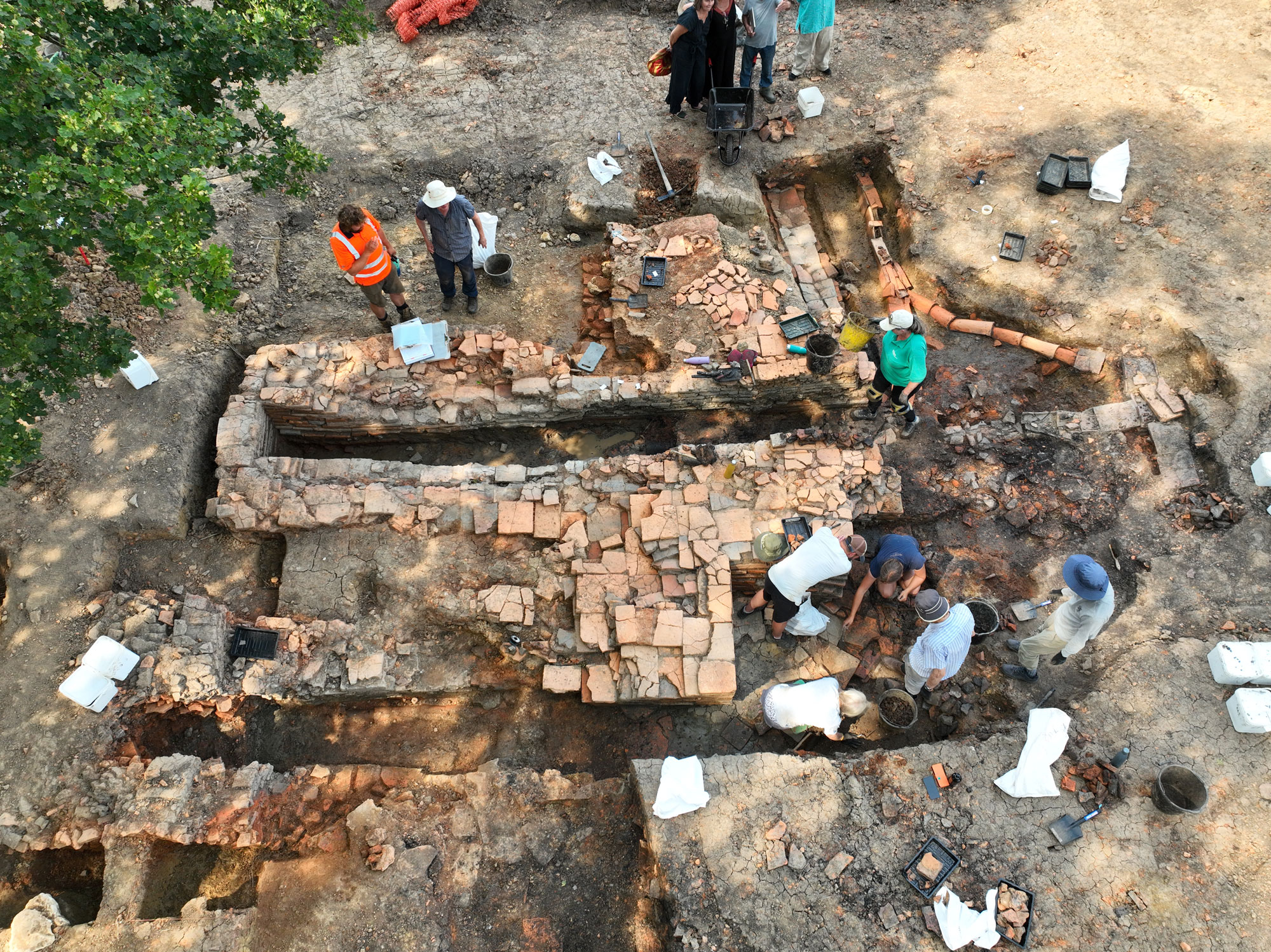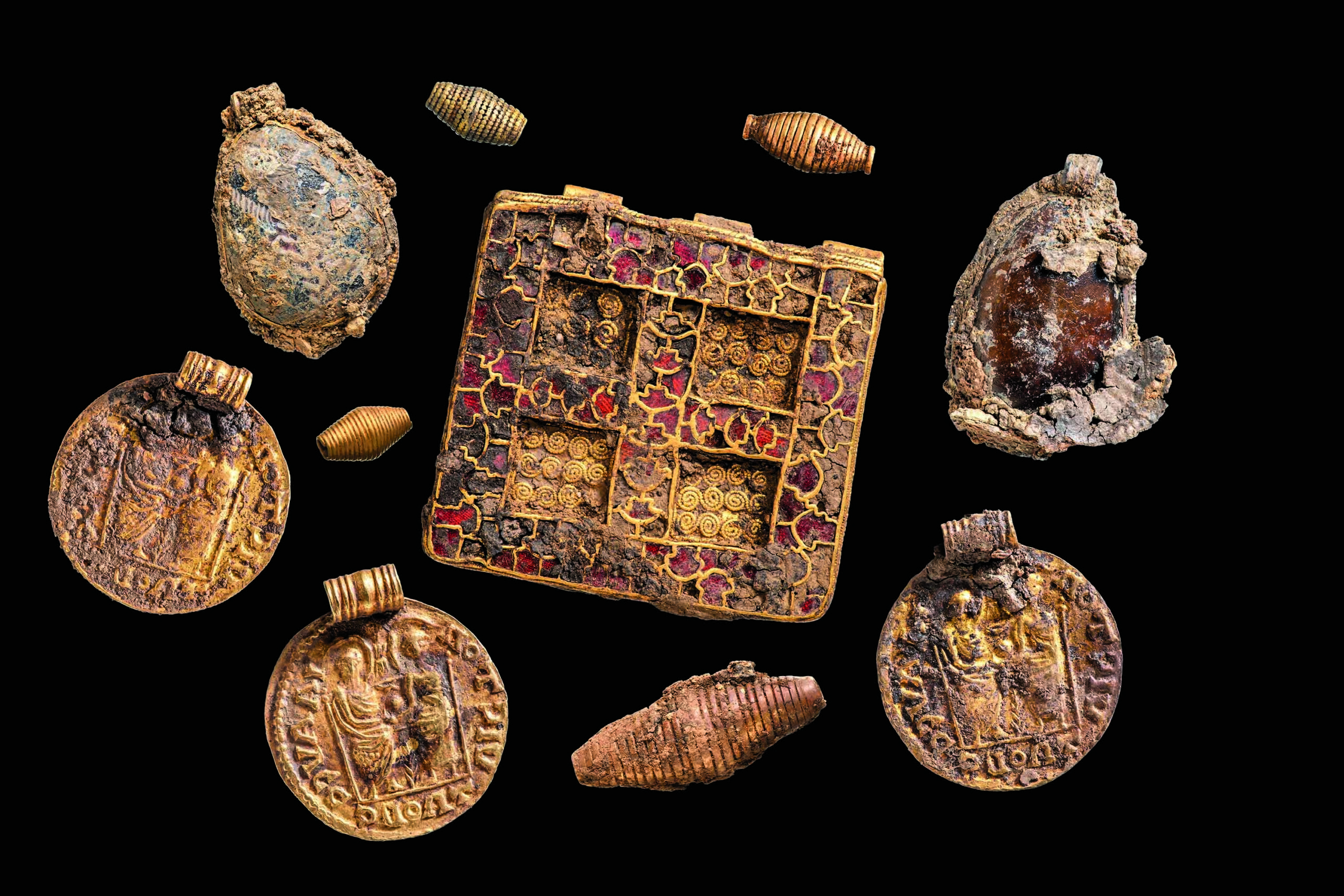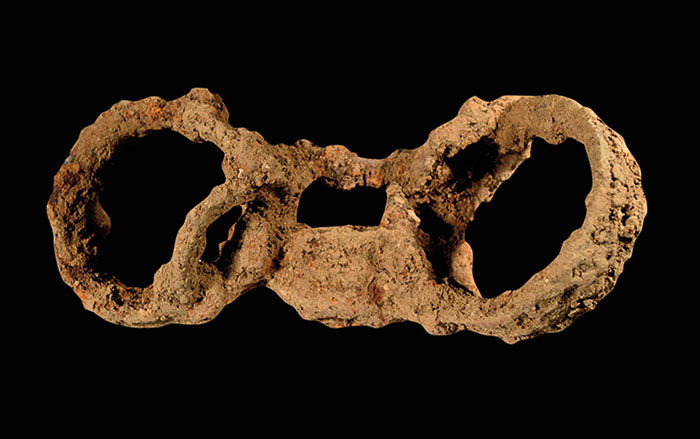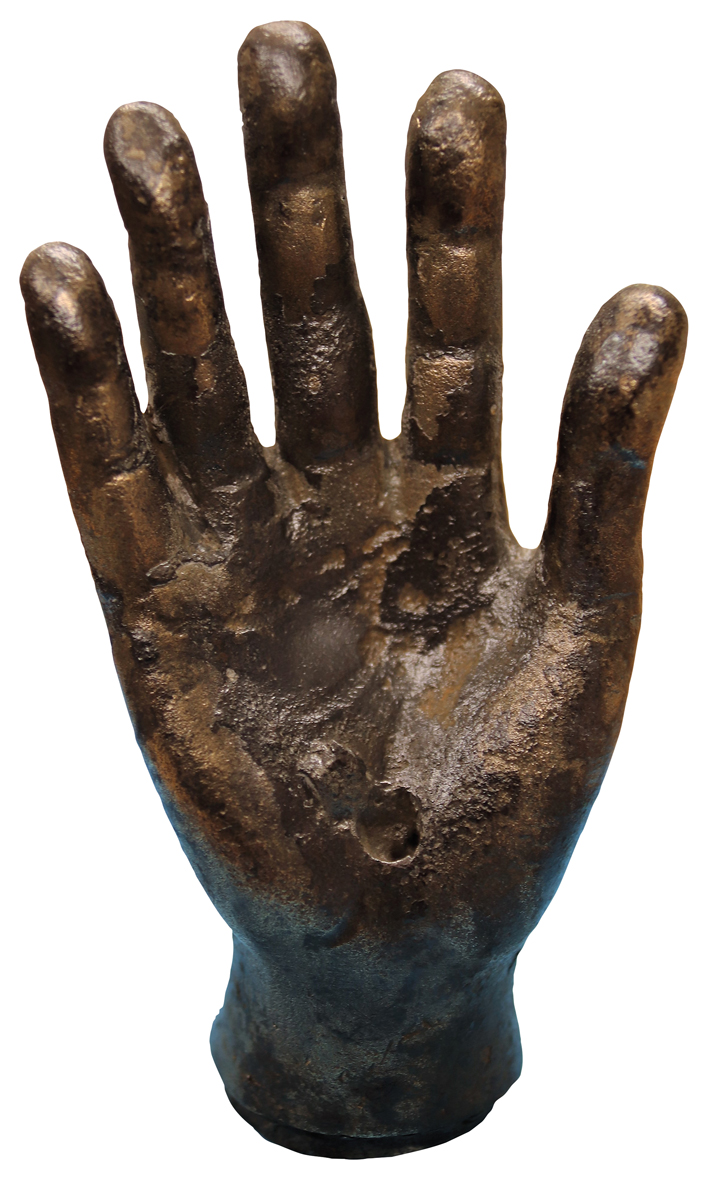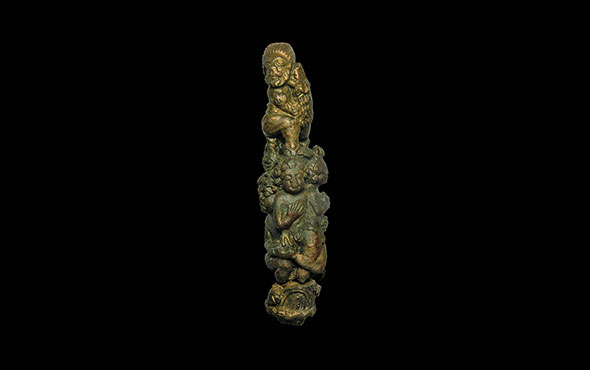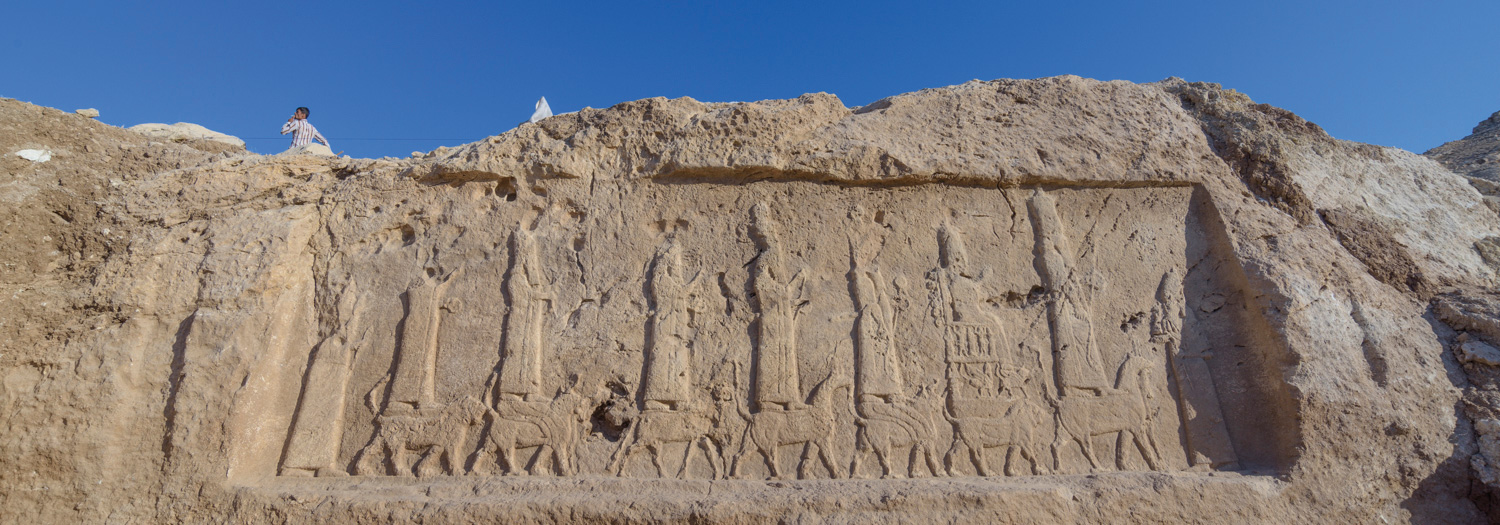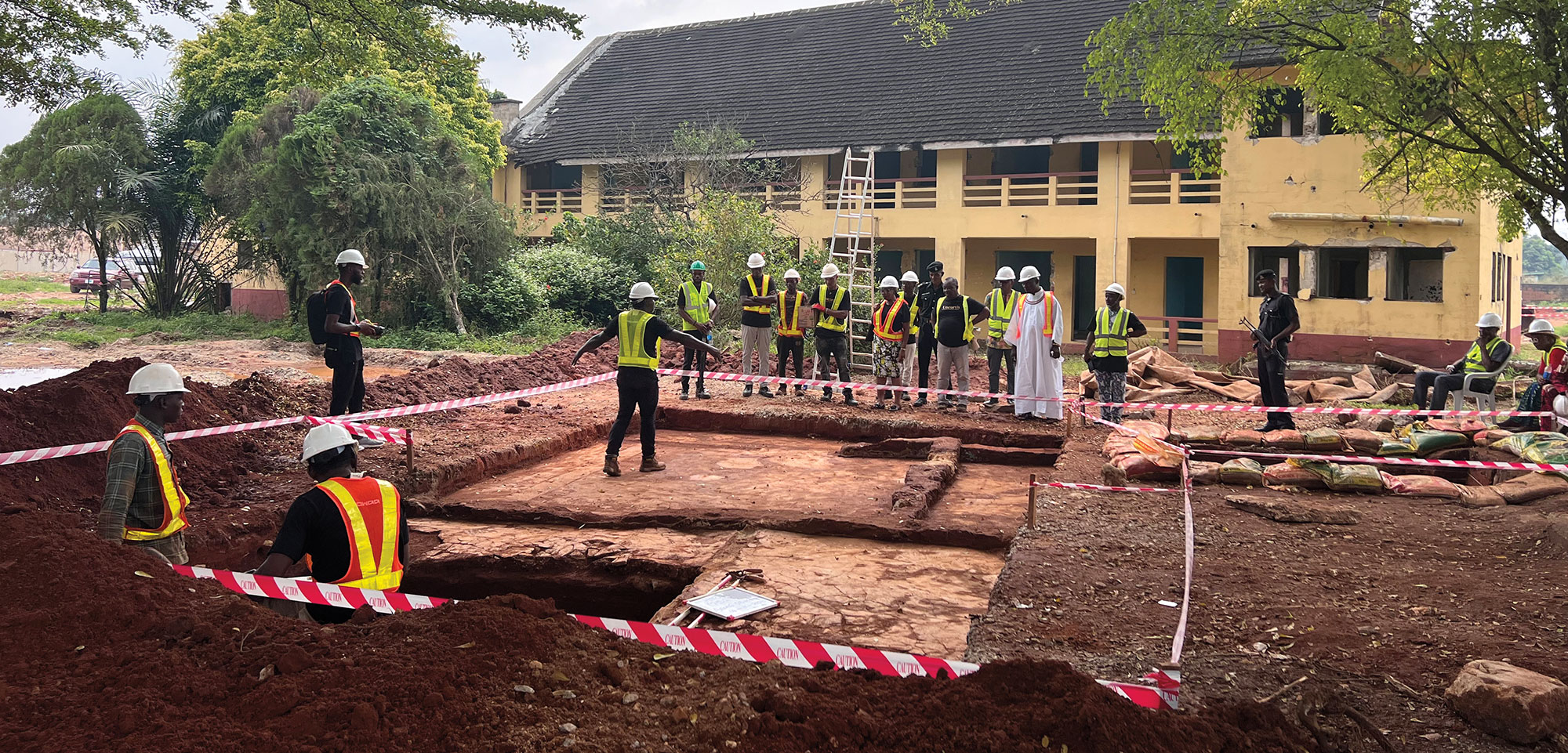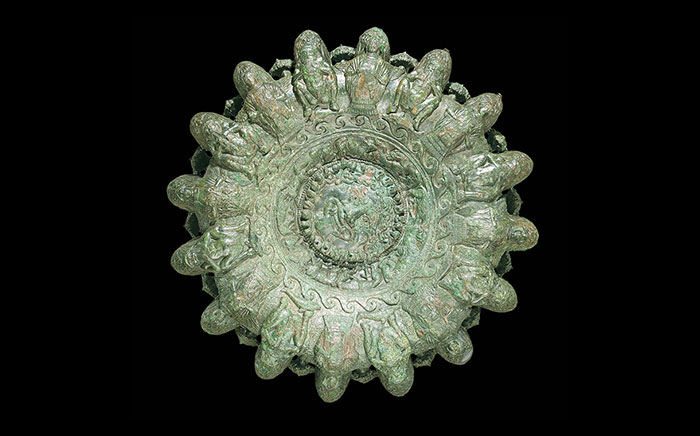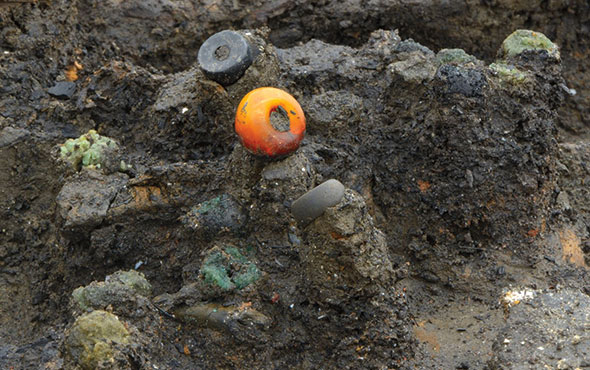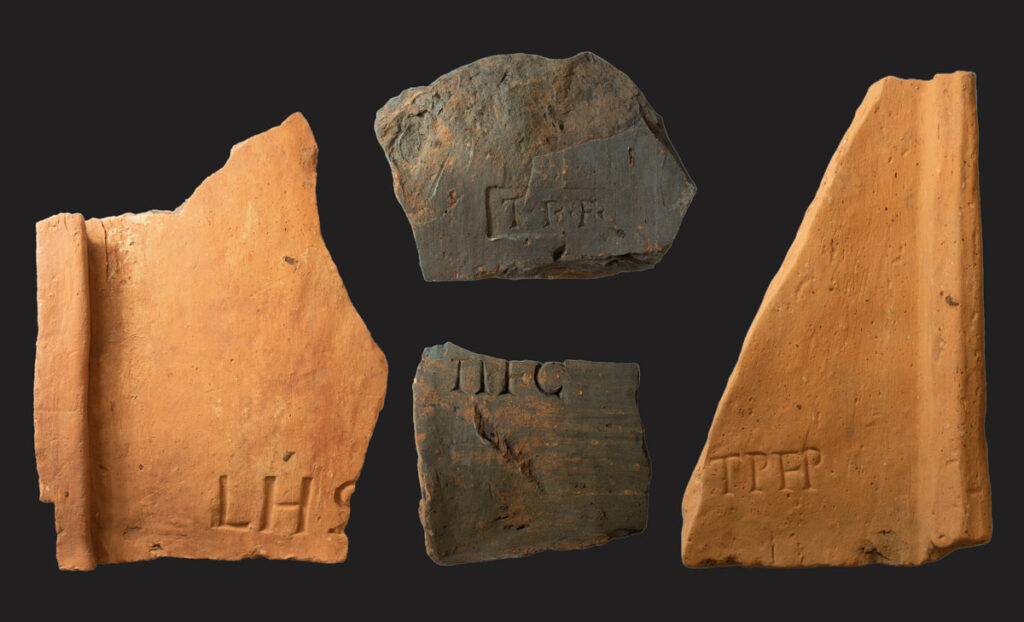
GLOUCESTERSHIRE, ENGLAND—BBC News reports that an 1,800-year-old kiln has been discovered just underneath the surface of the ground on private land in southwestern England. Stamps on tiles recovered at the site suggest that it had been the municipal tile works for the Roman town of Corinium, which is now known as Cirencester. Anton Beechey of Cotswold Archaeology said that most of the kiln would have been underground, while the firing chambers would have been aboveground. The underground walls of the structure have been well preserved. The kiln’s spyhole, which would have been embedded in the roof of the kiln so that workers could check on the firing process, was also recovered. Repurposed roof tiles found on the floor of the site are thought to have served as drains to handle the rainy British weather, said Neil Holbrook of Cotswold Archaeology. “The last thing you want is water getting into your kiln, it would put the fire out,” he explained. Many handmade tiles have also been uncovered. It appears some of them were rejected because animals or children had left footprints on them, added Roman tile expert Peter Warry. Overall, he said that the tiles were very well-made, and some of them would have been used to construct heated floors and baths. To read about Roman tiles with animal prints that were uncovered in Leicester, go to "They're Just Like Us."


